Image by Freepik
In today’s digital age, text-to-speech (TTS) technology has become an invaluable tool for many users, from students and professionals to those with reading difficulties.
This article compares two popular TTS applications: NaturalReader and Listening.com.
We’ll explore their features, pricing, and overall performance to help you determine which text-to-speech software is better suited for your needs.
If you’re looking for the best text-to-speech app, this comprehensive review will provide valuable insights to guide your decision.

NaturalReader vs Listening.com
NaturalReader and Listening.com are both text-to-speech tools designed to convert written text into spoken words.
But what sets these two applications apart?
NaturalReader: AI Voices
NaturalReader is a versatile text-to-speech software that offers a range of features for converting text to speech.
It supports multiple file formats and provides users with various voice options and reading speeds.
NaturalReader is known for its user-friendly interface and ability to handle large documents.
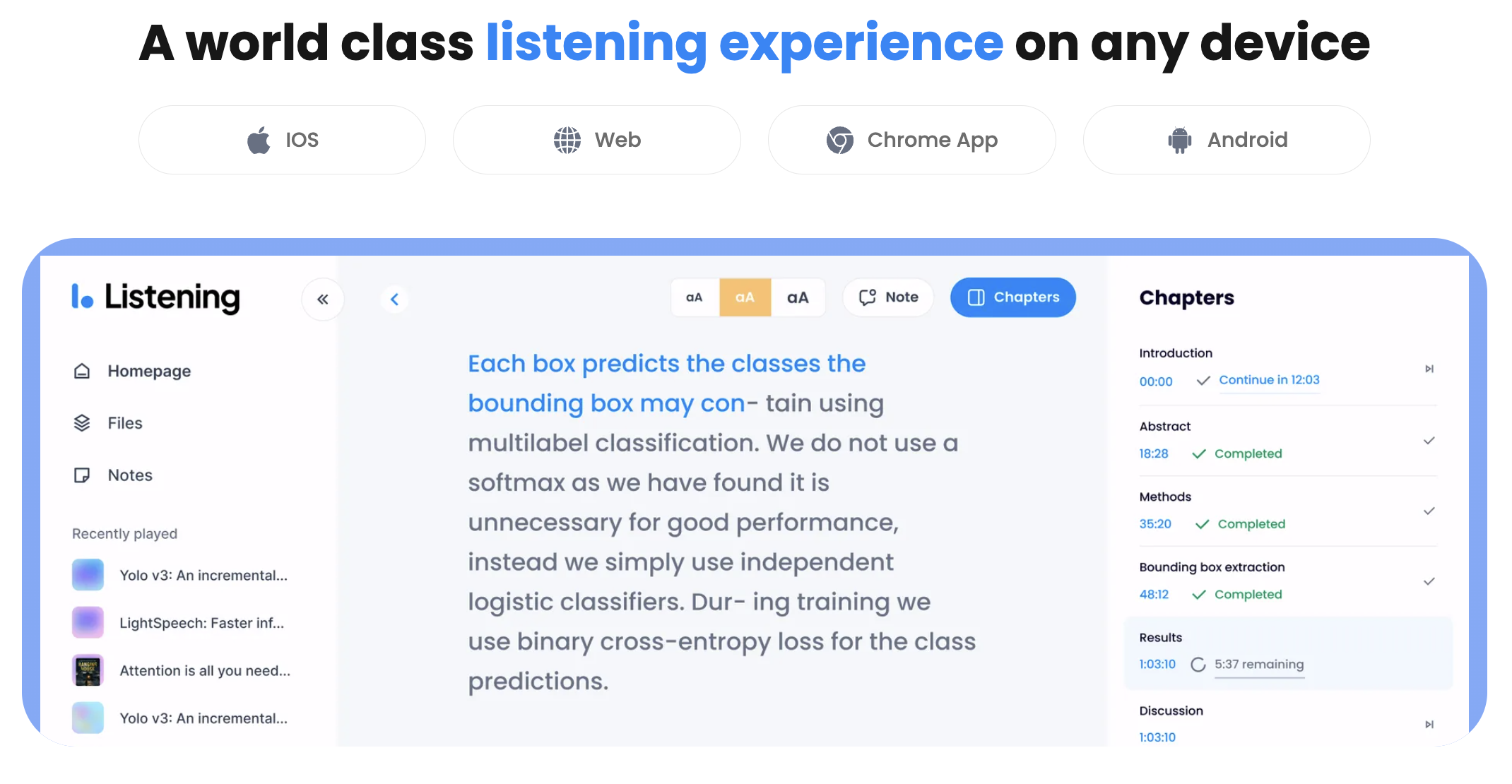
Listening.com: Text to Speech for Academic Papers
Listening.com, on the other hand, is a text-to-speech application that specializes in converting academic research and journals into high-quality audio.
It offers a straightforward platform for users to paste or type text and have it read aloud.
Both tools use advanced speech synthesis technology to transform written text into natural-sounding speech, aiming to provide a listening experience that closely mimics human speech.
How Do These TTS Apps Convert Text to Speech?
Understanding the technology behind these text-to-speech tools can help users appreciate their capabilities.
So, how exactly do Natural Reader and Listening.com convert text to speech?
Both applications use artificial intelligence and natural language processing to analyze written text and convert it into spoken words.
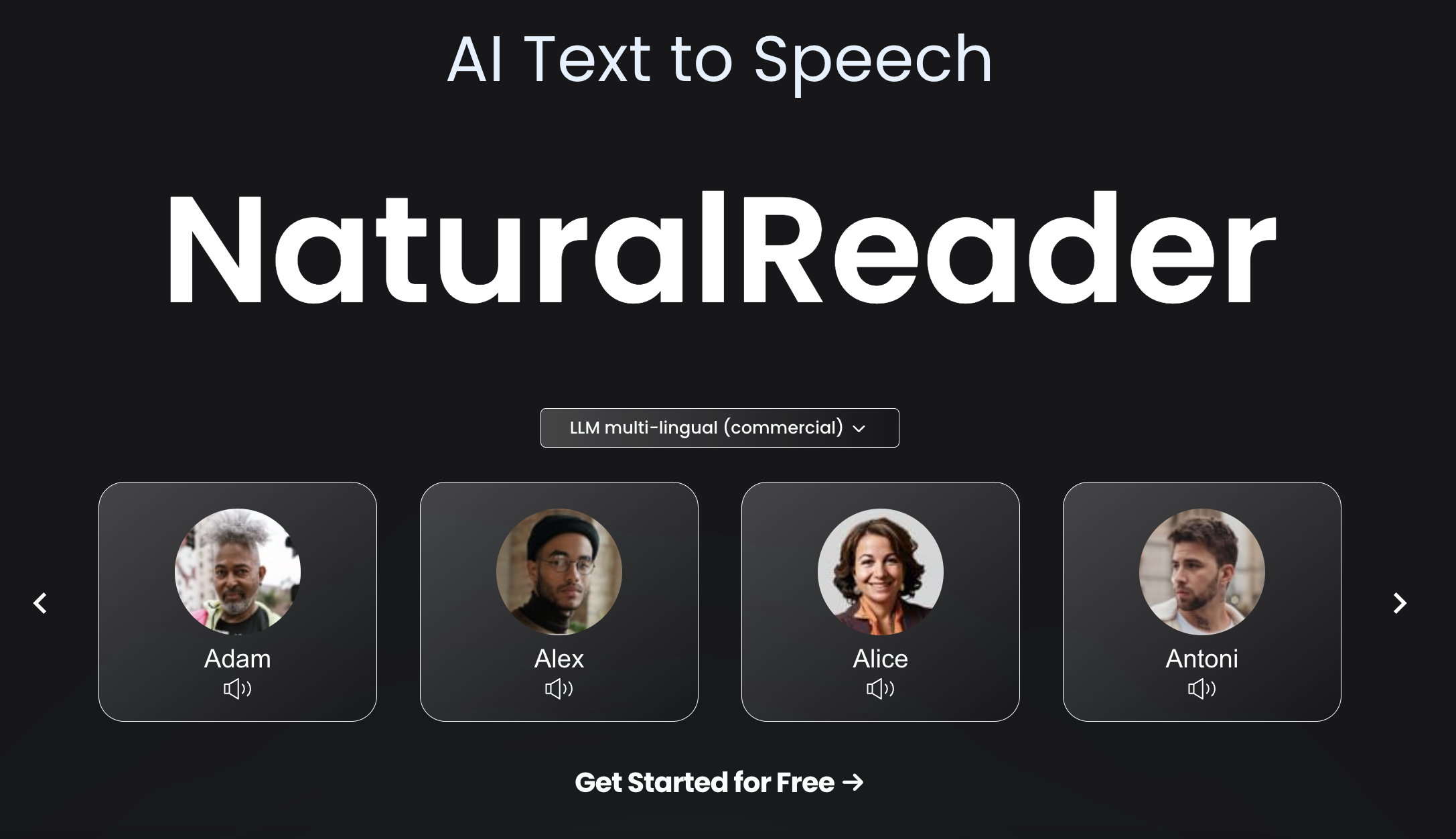
This process involves breaking down the text into smaller units, such as words or phonemes, and then using machine learning algorithms to determine the correct pronunciation and intonation.
NaturalReader Key Features
NaturalReader offers a comprehensive set of features that make it a popular choice among TTS users. But what specific capabilities set it apart?
One of the standout features of Natural Reader is its ability to handle multiple file formats. Users can convert text from PDFs, web pages, and various document types into speech.
This versatility makes it a valuable tool for students, professionals, and anyone who needs to consume content from different sources.
Natural Reader also offers a text-highlighting feature that synchronizes with the spoken words.
This feature is particularly useful for users with reading difficulties or those learning a new language, as it helps them follow along with the text being read.
Another notable feature is Natural Reader’s Chrome extension, which allows users to convert web content to speech directly from their browser.
This integration enhances the software’s accessibility and convenience, making it easier for users to listen to online content on the go.
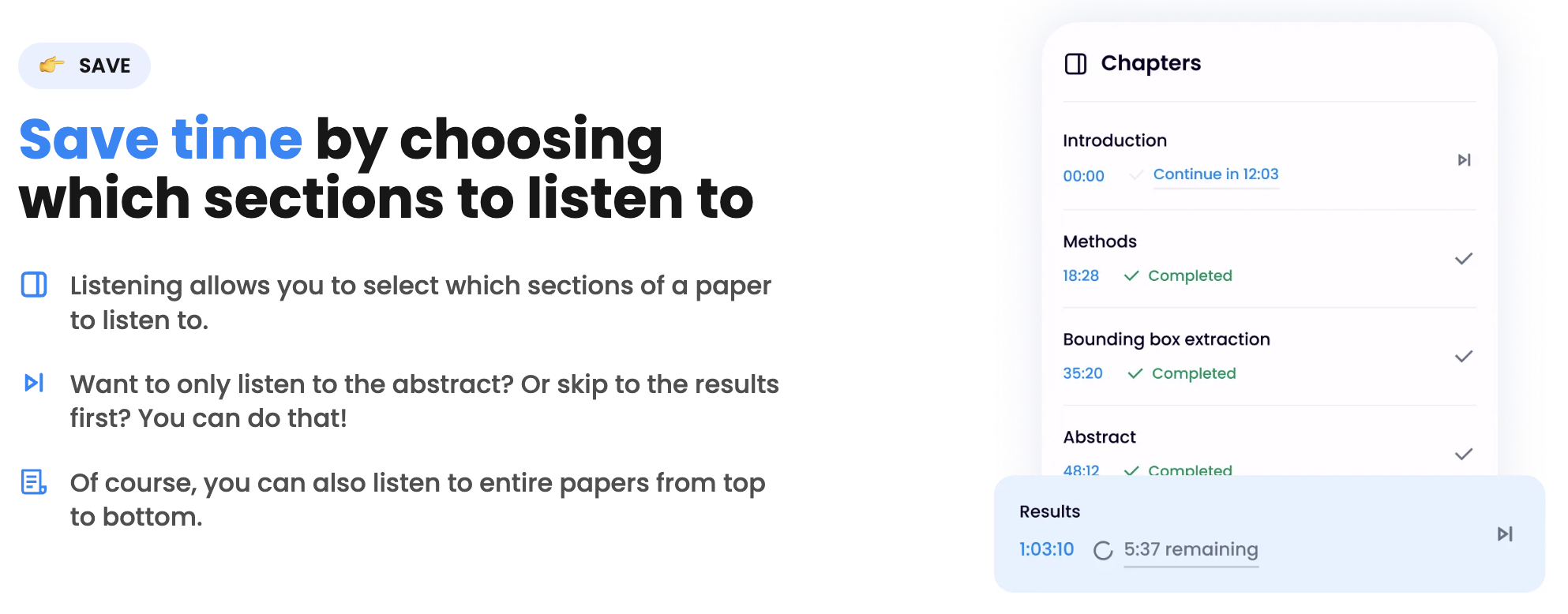
Listening.com Key Features
While Listening.com may not offer as many features as Natural Reader, it has its own set of capabilities that cater to specific user needs. So, what does Listening.com bring to the table?
Listening.com’s primary focus is on simplicity and ease of use. Its web-based platform allows users to quickly paste or type text and have it read aloud without the need for any downloads or installations.
This instant accessibility makes it an attractive option for users who need occasional text-to-speech conversion.
One of Listening.com’s strengths is its clean and intuitive interface. The platform is designed to be user-friendly, with clear controls for play, pause, and adjusting reading speed.
While it may not offer as many voice options as NaturalReader, it provides clear and understandable speech that serves its purpose effectively.
Listening.com also offers the ability to save audio files of the converted text.
This feature allows users to download and listen to the speech offline, which can be particularly useful for those who want to listen to content while commuting or in areas with limited internet connectivity.
NaturalReader vs Listening: Voice Quality
The quality of the AI-generated voices is a crucial factor in the effectiveness of any text-to-speech tool.
So, how do NaturalReader and Listening.com stack up in terms of voice quality?
NaturalReader Voice Quality
NaturalReader is known for its natural-sounding voices. It offers a wide range of voice options, including different accents and languages.
The premium version of NaturalReader provides access to high-quality voices that closely mimic human speech, offering a more pleasant and engaging listening experience.
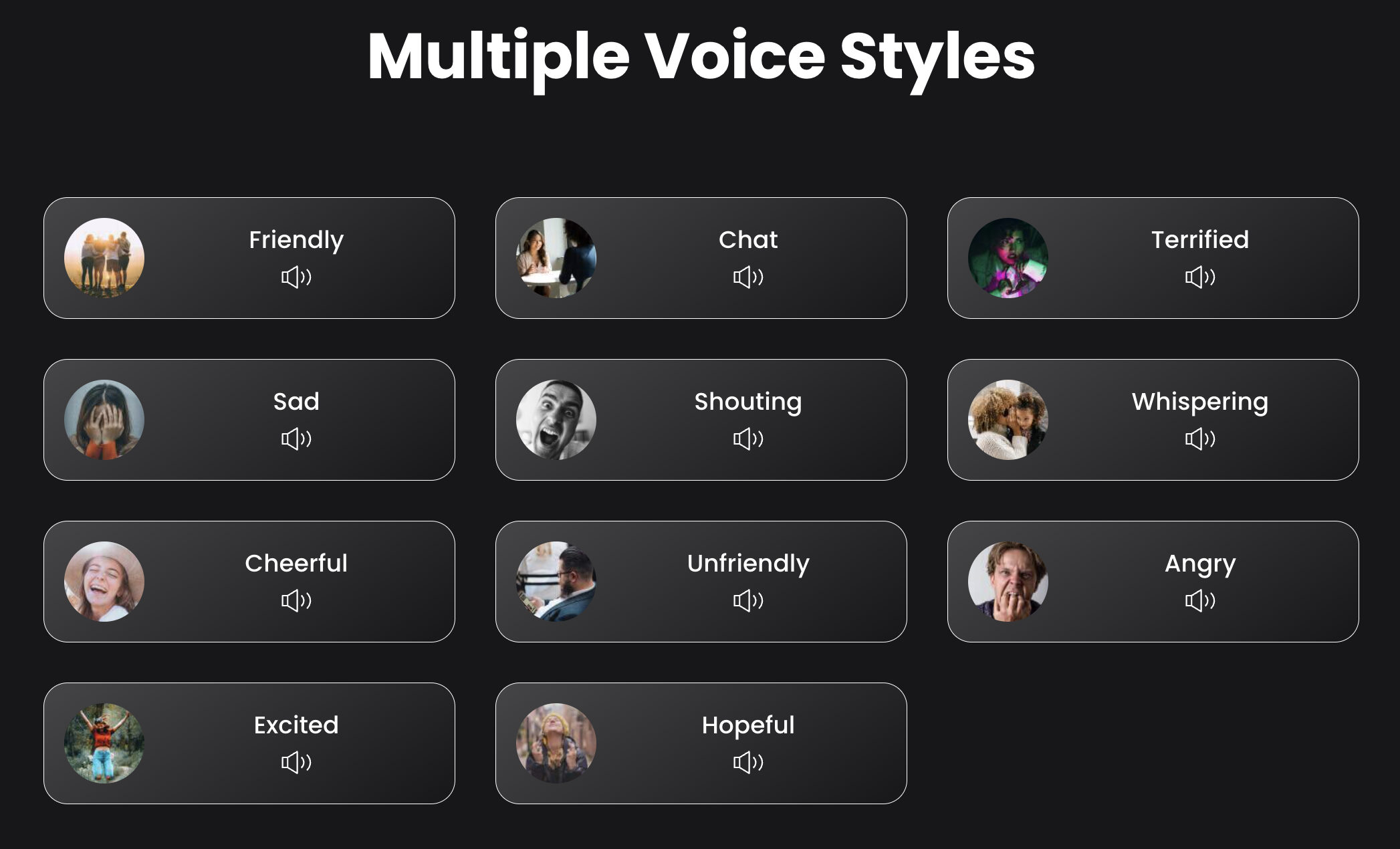
Listening Voice Quality
Listening.com focuses on providing clear and understandable speech.
It can easily pronounce highly technical terms and words in different fields.
NaturalReader vs Listening: Pricing
Understanding the cost associated with these text-to-speech tools is crucial for potential users.
So, what are the pricing structures for NaturalReader and Listening.com?
NaturalReader Pricing
NaturalReader offers both free and paid versions. The free version provides basic text-to-speech functionality with standard voices.
- Free: Up to 20,000 characters per day
- Premium: $9.99/month or $59.88/year
- Plus: $19/month or $110/year
Listening.com Pricing
Listening.com provides a tiered pricing structure to cater to different user needs.
They offer a free trial that allows unlimited listening for 3 days so that users have the opportunity to test the full capabilities of the platform before committing to a paid plan.
This trial can be canceled at any time.
- Free: Unlimited listening for 3 days. Cancel anytime.
- Monthly: Unlimited listening at $19.99/month
- Yearly: Unlimited listening at $125/year
NaturalReader vs Listening.com: User Reviews
NaturalReader User Reviews
Let’s look at what real users think about NaturalReader.
Zenora gives the app five stars. She likes that you can try premium features for free. “You can use the plus voices for 5 minutes a day,” she says. Zenora finds the voices good for both school and work. She also loves the camera feature.
Not everyone is as happy. Selina Rachel W has mixed feelings. She thinks the AI voices are great. But she faces many technical issues. “I’m always asked to log in again,” she complains. She also says the premium voices sometimes stop working.
Walter Adams is even less pleased. He gives the app one star. “The bugs I find make me sick,” Walter writes. He’s frustrated by constant problems that don’t get fixed.
These reviews show a common theme. Users love the voice technology. But many struggle with technical issues. Some stick with the app just for the voices. But their patience is running out.
The reviews also talk about pricing. Some like the free options. Others think the paid versions are too expensive, given the problems.
In short, NaturalReader has great voice tech. But it’s held back by technical issues. New users should weigh the pros and cons. They’ll need to decide if the voice quality is worth the potential headaches.
Listening.com User Reviews
The Listening app helps many types of users read written content.
Róisín, who has dyslexia, loves the app. She says it’s better than other reading tools she’s tried. She likes the clear text, good pronunciation, and the option to turn off citations.
Bell Jelly finds the app great for academic reading. It makes research papers easier to understand. Bell suggests removing reference numbers to improve listening.
Mel Cliff, calls the app a “timesaver” and “sightsaver.” It lets Mel study at home without going to crowded lectures.
Not all reviews are perfect. Emily Cruz had trouble with longer texts. She also found subscription management frustrating.
Overall, users like Listening. They say it makes reading more accessible and efficient. If the app fixes issues like Emily’s, it could become even more useful for all kinds of readers.
NaturalReader vs Listening.com: Use Cases
Understanding the ideal scenarios for using each text-to-speech tool can help potential users determine which one better suits their needs.
Let’s explore the best use cases for NaturalReader and the Listening App.
NaturalReader Use Cases
NaturalReader excels in both personal and commercial settings:
1. Personal Use:
– Reading long documents or e-books for leisure
– Proofreading personal writing projects
– Consuming news articles or blog posts
2. Commercial AI Voice Generator:
– Creating voiceovers for marketing videos
– Generating audio content for podcasts or audiobooks
– Producing voice prompts for phone systems or apps
NaturalReader’s versatility in handling various file formats and its high-quality voices make it a powerful tool for both individual users and businesses looking to generate professional-sounding audio content.
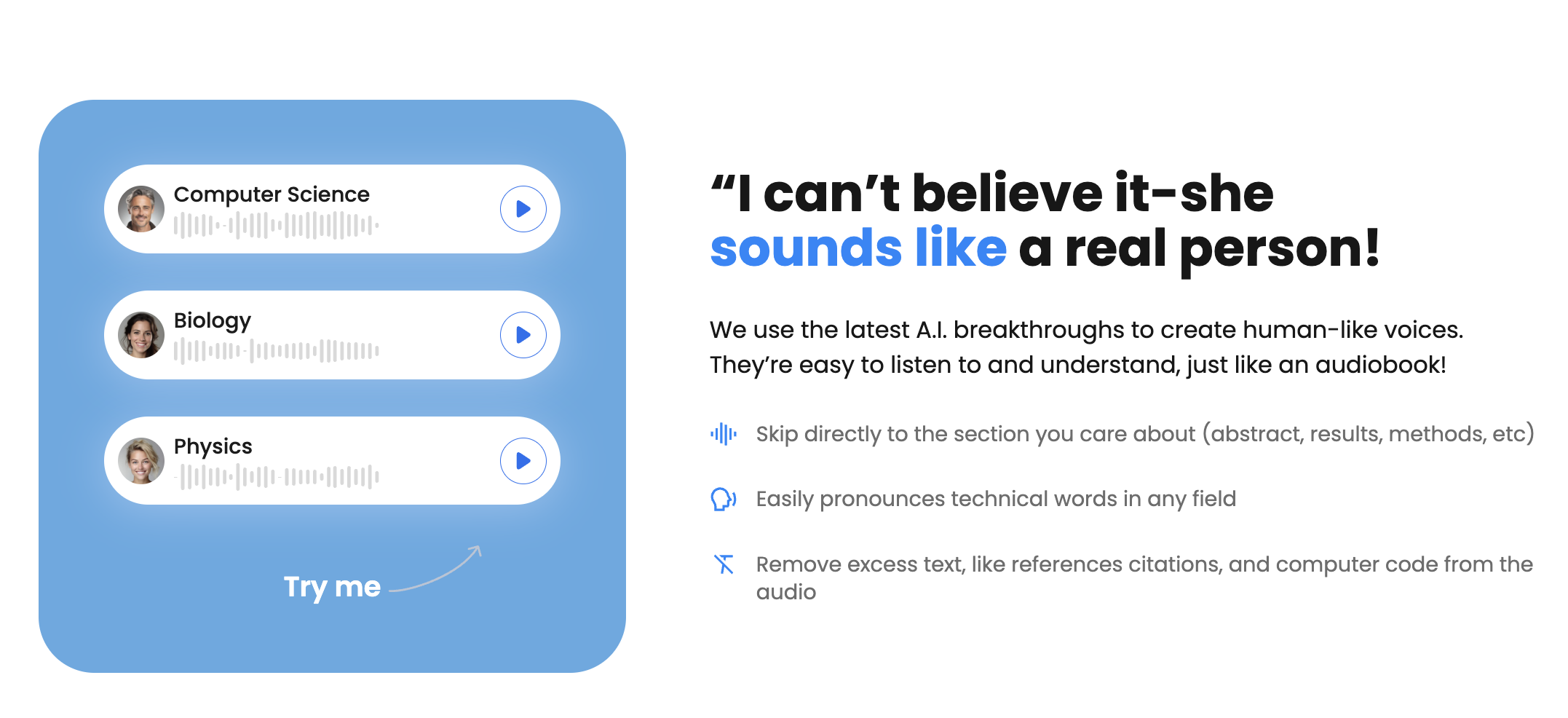
Listening.com Use Cases
The Listening App, on the other hand, shines in academic environments:
1. Academics and Researchers:
– Converting dense research papers into easy-to-digest audio
– Listening to journal articles while multitasking
– Reviewing academic literature more efficiently
2. Students:
– Turning textbook chapters into audio for on-the-go studying
– Improving comprehension of complex academic texts
– Making lecture notes more accessible
3. Graduate Students:
– Converting lengthy dissertations into audio format
– Reviewing peer-reviewed articles while commuting
– Enhancing understanding of intricate theoretical concepts
The Listening App’s focus on academic content and its ability to handle complex, jargon-heavy texts make it an invaluable tool for anyone in the academic world.
Its high-quality audio output ensures that even the most technical content is clearly conveyed.
What’s the Verdict: Which TTS App is Better?
After comparing Natural Reader and Listening.com, it’s clear that both offer valuable text-to-speech solutions, each with its own strengths catering to different user needs.
Listening.com stands out for its focus on academic users. It excels at converting complex research papers and journal articles into high-quality audio.
Users praise its clear pronunciation of technical terms and jargon, making it particularly useful for students, researchers, and academics. The app’s user-friendly interface and features like adjustable reading speeds enhance the learning experience.
Listening.com’s pricing is competitive, with a free 3-day trial and affordable subscription options.
This makes it accessible to budget-conscious students and researchers. Positive user feedback often highlights how the app has improved study habits and comprehension.
On the other hand, NaturalReader offers a more versatile solution suitable for a broader range of users. Its strength lies in supporting multiple file formats and providing a variety of voice options.
This makes it a good choice for both personal and commercial use, such as creating voiceovers or audio content.
NaturalReader’s features like text highlighting and browser extensions add to its flexibility.
While it may be slightly more expensive, some users find the additional features justify the cost.
In conclusion, the choice between Listening.com and NaturalReader depends on your specific needs:
- If you’re primarily dealing with academic or research-based content, Listening.com’s specialized approach makes it an excellent choice.
- For those needing a more versatile tool for various personal or business applications, NaturalReader’s broader feature set might be more suitable.
Both apps have their merits, and your decision should be based on the type of content you most frequently engage with and the specific features that align with your workflow.
Consider trying both to see which better fits your needs.




